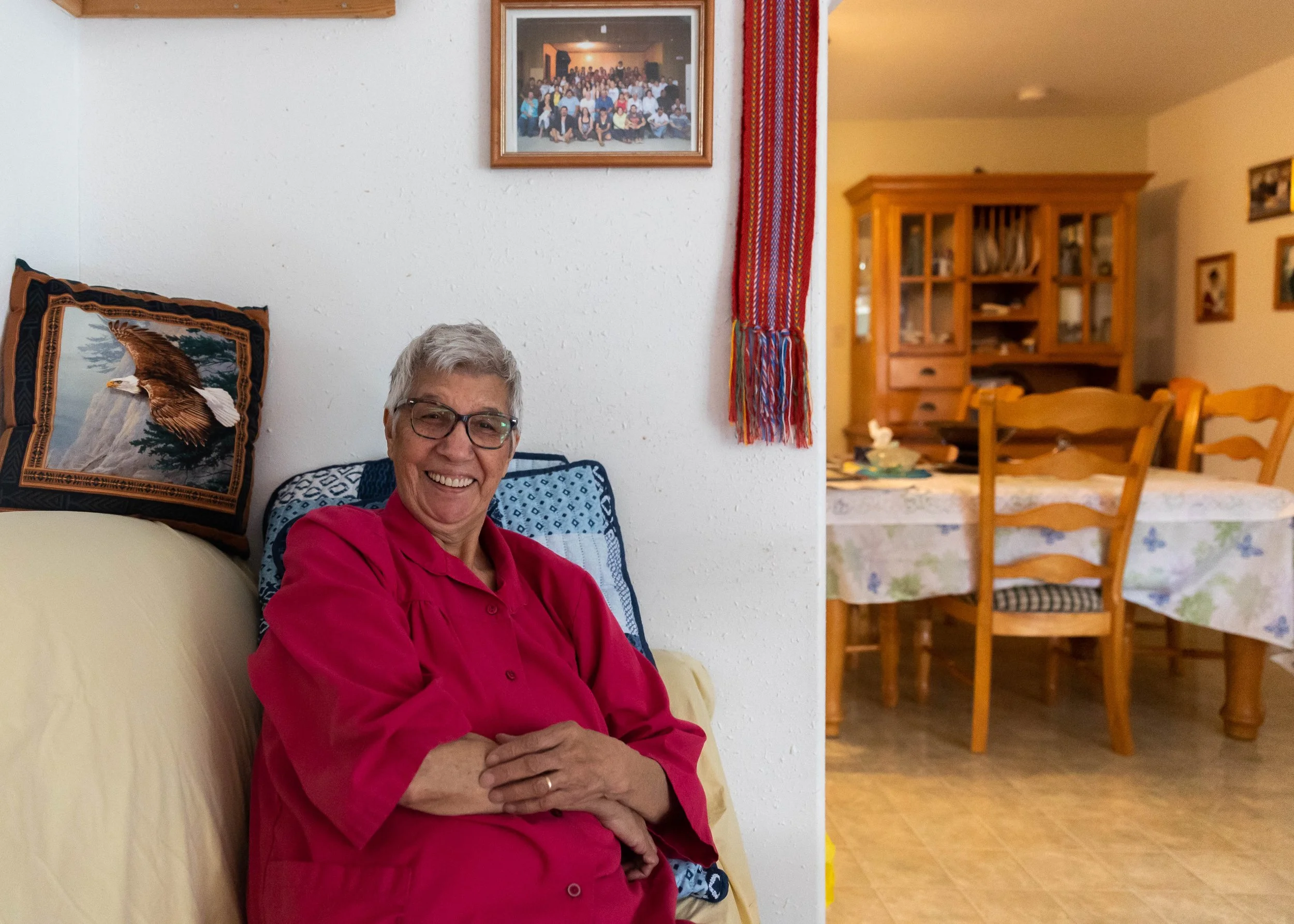Julia Auger - Paddle Praire Metis Settlement, Alberta
She woke up and started her morning like every other morning by turning on the radio and making a pot of coffee. Julia Auger sat down at her kitchen table and, without realizing it, started to hum Rubby Dollie, an old tune she used to play on her guitar. For some reason, she began to reminisce about days gone by. Music has always been part of her life; she couldn't start her day without it. She learned from her dad, Ambrose Nooskey, a talented musician, how to play the fiddle and steel guitar. She cut her teeth on a guitar.
Julia wasn't the only one her dad taught music to. He was very kind and took all the local kids who wanted to learn music under his wing, sharing his love of music. Even though he was generous with his time, her dad was very strict with his teaching and expected the same dedication from his students as he gave to them. Every Friday and Saturday at 7:00 pm, the kids came by. What little furniture they had was moved out of the house, benches were brought in for the kids to sit on, and he taught them to play an instrument and to sing. Her mom, Eva Leprette, made Bannock, and the kids had it with tea during their breaks. After the lessons, they had a Jam session and played till 9:00 pm.
When her dad wasn't teaching music, he loved to perform at local dances. He played with her uncle George Sinclair. Before the dances, they practiced all day, taking turns with the instruments and traveling to High Level to perform. To get to High Level, they stood on the side of the highway holding all their instruments, waiting for the Greyhound bus. Her dad was paid $2.00.
The home she grew up in was full of music, which made her happy. Where there was music, people came from near and far, and her mom always had a big pot of soup on the stove, fresh bannock or mashed potatoes with gravy when they didn't have meat. No one left their home without being fed.
Besides music, education has also been important to Julia. She grew up in a home where her parents could hardly write their names. When she was younger, before her family settled in Paddle Prairie, they travelled around trying to find work. Not many people had a chance to go to school, but they sure did work hard.
They were a poor family, but they never knew they were poor. Everyone in their community lived the same way. In 1945, just after the war, she remembers going into town with her mom, nine miles out of the hamlet. Because of the rations, they were only allowed six items to purchase, so before they left, her dad lined up all the items for Julia to memorize. Flour, baking powder, sugar, kerosene, Lard, and raisins, which were a treat. That was all they could get; they couldn't get any sweets. Through the years, this experience taught Julia how to recognize different things; she still uses her memory today. She can still remember phone numbers and used this method to become a Social Worker when attending school.
The way Julia grew up was the way she raised her children. The love of music and laughter was in their home, and the local kids came over. As her mom had done before her, Julia always had food for everyone. No one left her home hungry.
Looking back, she realizes she used to think her dad was strict, but he taught music in a way you didn't realize you were learning. She can hear any instrument and know whether it's in tune or not.
Words of wisdom her dad taught her, that she has lived her entire life by, are, "Always be proud of who you are," and she is.
,
